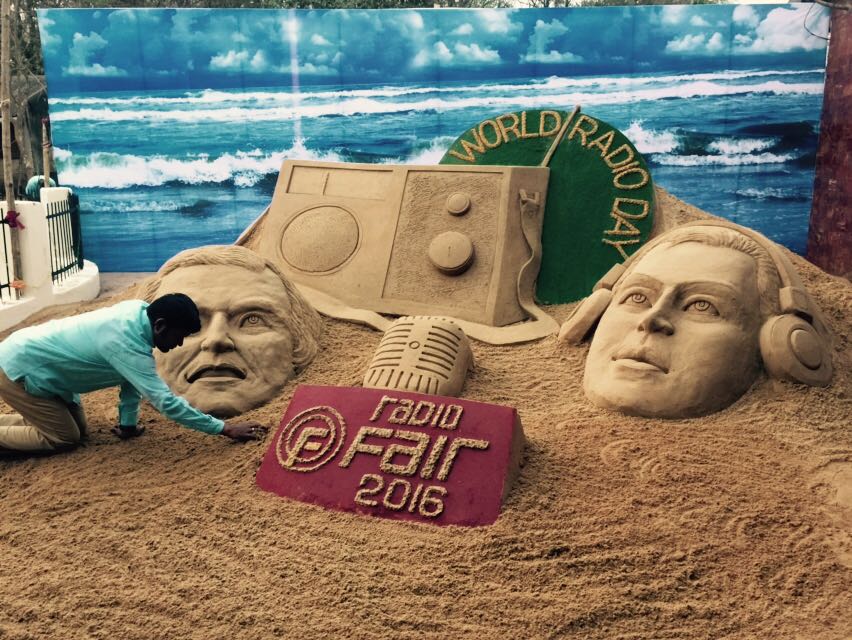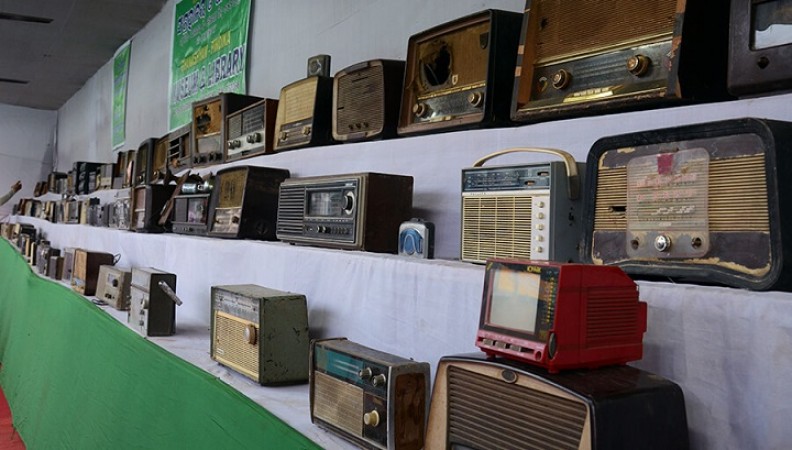Azadi Ka Amrit Mahotsav Special

History of Radio Broadcast in India
November 16, 2023
Role of Radio in Disaster Management
November 16, 2023The Underground Radio and Quit India Movement
Azadi Ka Amrit Mahotsav Special
Subrat Kumar Pati
August 1942 – Quit India Movement was already in full swing and Mahatma Gandhi had given the clarion of “Do or Die” in the Bombay Session of Congress. British Colonial government’s torture was becoming intolerable. The entire country was experiencing a strong sentiment to oust the British government. Within 24 hours of Bombay session, 60 thousand Congess workers who were a part of Quit India Movement were arrested. Many senior Congress leaders including Gandhi and Nehru had already been arrested. There was a dire need of young people to lead the movement.
Gandhi knew that the Colonial government would go to any extent to curb the movement. Young Men and women were told to take the responsibility to lead the movement in their own area. No one could write anything against the colonial government because of the fear of going to the Jail. All India Radio was under the control of the British administration. The agitators were taking all measures to disrupt the law and order situation. Along with closing the roads, agitators were trying to disrupt the communications. They were closing offices, educational institutions, railway stations, post offices, everything. The general public was unable to get any information. Gandhiji and other Congress leaders felt the need to send the message regarding the movement across the country and about the injustice of the colonial government.
August 14, Time – 7.30. The entire country was surprised to hear a strange female voice on the radio from an unknown transmitter. “ This is Congress Radio calling on 42.34 metres from somewhere in India”, the female baritone took the country by surprise. It was the voice of a great patriot and Gandhian, Usha Mehta. She was just 22 years old. But, her heart was filled with an emotion to take the freedom movement forward. It was Usha Mehta who had started Congress Radio with the help of few like minded friends. She had to struggle a lot to arrange the money needed to buy a transmitter from Nanik Motwani, the owner of the Bombay based Chicago Radio. Chandrakant Zaveri and Vitthal Das Javeri. The technical help came from Nariman Printer. People who supported him
This radio became the mouthpiece of Congess. The Congress leaders often used this medium to reach out to people staying in every nook and corner of India.
The news used to first come from the regional offices of the Congress party and it used to be edited and presented after that. Ram Manohar Lohia, Achyut Patwardhan, Moinuddin Harish and Kumi Dastur read news in English. Usha Meha was adept in reading the news both in English and Hindi. Apart from the Bulletin, the voice recordings of the Congress sessions were also broadcasted. Before starting with any program “Saare Jahan se Achcha” was played and at the end of the program, Bankim Chandra’s Vande Mataram was played. Congress Radio’s programs deeply reflected the emotions of patriotism and nationalism. Congress Radio had sown the seeds of freedom in the hearts of millions of Indians. It was called the ghost radio or underground radio because it was operating in a clandestine manner.
Within just three days of the operation of Congress radio, the colonial government got to know about it. Suddenly, Congress radio was considered a headache. The police sprung into action and went in search at many places in Bombay for Usha and her colleagues. It became increasingly difficult to start operating from one place. Therefore, Usha and her colleagues had to change their locations several times. They used to do this in the dead of the night. Not only in and around Bombay, but Congress radio used to operate from many different cities across the country to avoid getting caught. But, it was not easy to remain incognito for long. That year, on 12th November, when Usha and four of her friends were broadcasting a program, police and few other government officials barged in. They threatened Usha to stop the broadcast immediately. But, Usha was not afraid, she continued to play the Vande Mataram unfettered. The officials confiscated the transmission equipment and Usha and her colleagues had a dialogue. The British government tried to dissuade Usha from engaging in such activities in future so offered to send her to foreign universities for higher education. But, she was not a girl with a frail heart. She refused the offer and preferred to go to jail. She stayed in the jail for four years. In 1998, Usha Mehta was conferred with Padma Bibhushana for her exemplary sacrifice and bravery.
Congress radio could operate only for three months. But, in those three months it made immense contributions to the Quit India movement. Last year, Penguin publications brought out a book with the title, “ Usha Mehta and the Underground Radio station of 1942”. This book brings out the story of Congress Radio beautifully. On the 75th year of Indian independence.as the entire nation is busy celebrating Azadi Ka Amrit Mahotsav, it is time to remember the glorious period of congress radio and offer our heartfelt gratitude to them.




